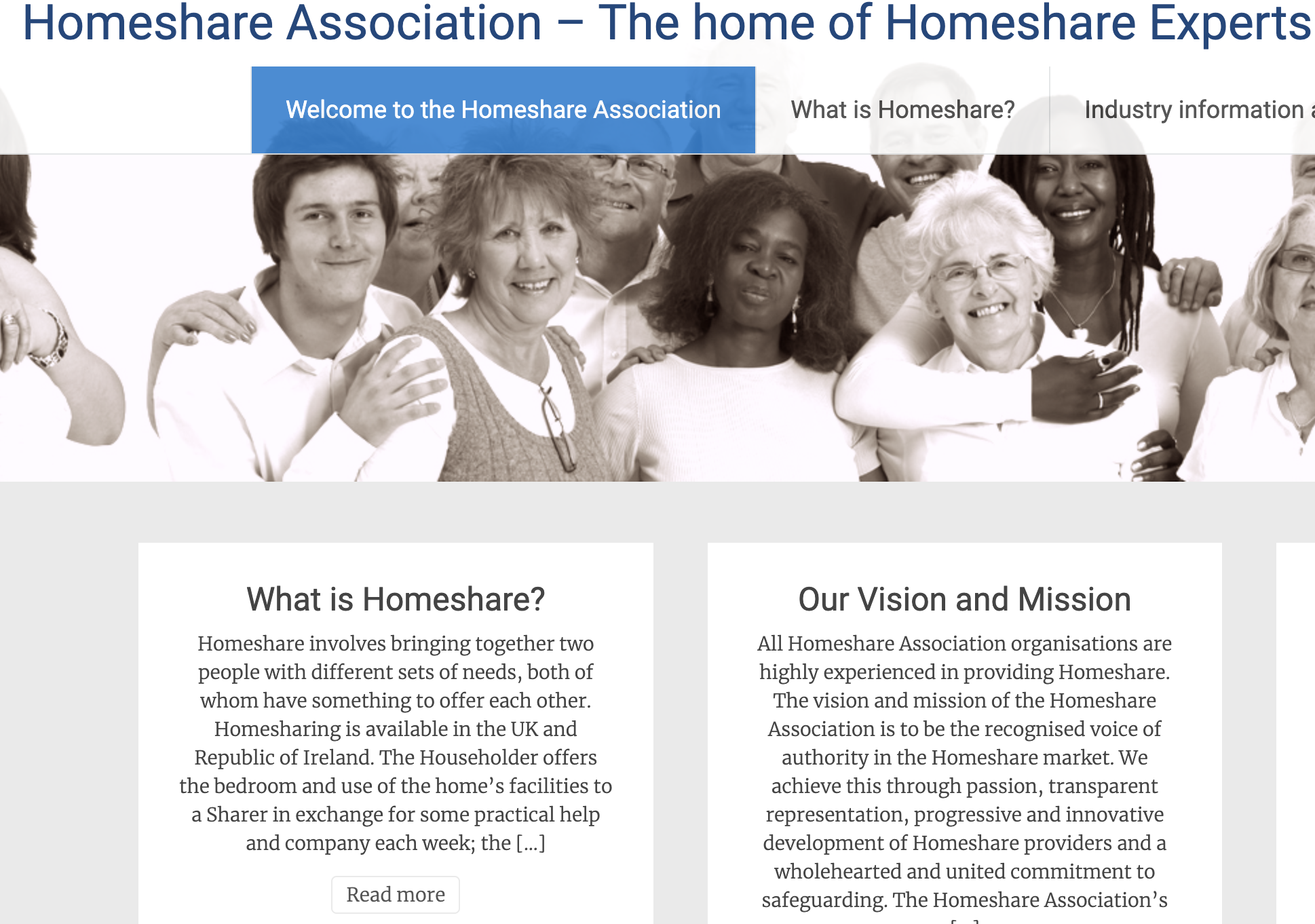A recently released report from The Homeshare Association provides a unique insight into the current market and what’s on the horizon for homeshare, and has revealed that the primary drivers for seeking a homeshare arrangement are poor mobility, 30%, and dementia, 26%.
Homeshare is a bespoke person-centred arrangement that involves bringing together two people with different sets of needs, both who have something to offer each other. For the householder, usually an older person, homesharing is one of the most affordable and safest ways to remain living independently at home. The sharer, will provide approximately 15 hours of practical help each week in exchange for a room to stay in.
100% of older people report positive impact.
The Homeshare Association’s vision is to build the homeshare sector further and be the recognised voice of authority and the insight and this report reinstates its leading presence, revealing compelling homeshare data.
Homeshare is a valuable health and social care model, and as the report confirms, benefits many types of people. It is particularly beneficial for older people living with dementia, Parkinson’s disease, or those who have mobility issues or are socially isolated. The list of primary drivers for homeshare arrangements also includes, poor eyesight, deafness, bereavement, falls risk, bipolar disorder, heart/lung risk, and memory issues.
The report confirms that homeshare is a flexible service which sits well amongst other support services, such as domiciliary care, and 100% of older people in a homeshare arrangement report a positive impact on their health and wellbeing.
The average age of a householder, according to the 2023 report, is 84. The median length of a homeshare match is between 9 – 15 months, with the longest current match in its 10th year! While the average age of a sharer is 39, the Homeshare Association’s data reveals the oldest 70 and the youngest 22, which highlights the breadth of appeal.
A preventive step
The barriers to take up of homeshare are also identified, and the report confirms that more needs to be done to offer homeshare as a solution when someone leaves hospital. It also cites the importance of reaching older people before crisis – homesharing can be an effective preventive step, reducing pressure of GPs, hospitals and other NHS resources.
Caroline Cooke from Share and Care Homeshare, founding members of The Homeshare Association said, “There is a strong need for arrangements of this type, and with health and social care services stretched to the max, homeshare matches will continue to grow.
Homeshare needs to be incorporated into the Integrated Care System (ICS) in the UK so that the service can play a bigger part in supporting people to live independently at home, and our members would welcome the social care sector and the NHS to formally engage with us to build a stronger framework to ensure the best possible person-centred service for a truly robust ‘Care in the Community’ model.”
Fellow founding member Amanda Clarke said, “We are in a unique position to share in-depth insight gathered from our membership organisations, and our inaugural report provides an invaluable insight into the powerful impact of homeshare arrangements, and importantly details what needs to be undertaken to increase take up. Homeshare is certainly playing a greater role in supporting people to live independently in their own homes, and building greater connections across health and social care and local authorities will ultimately overcome some of the main challenges currently faced. Let’s collaboratively drive the homeshare movement.”
If you would like to view the Homeshare Report 2023, please visit the Homeshare Association website
If you are working with someone who could benefit from a homeshare arrangement, please contact Share and Care Homeshare on 020 3865 3398.

